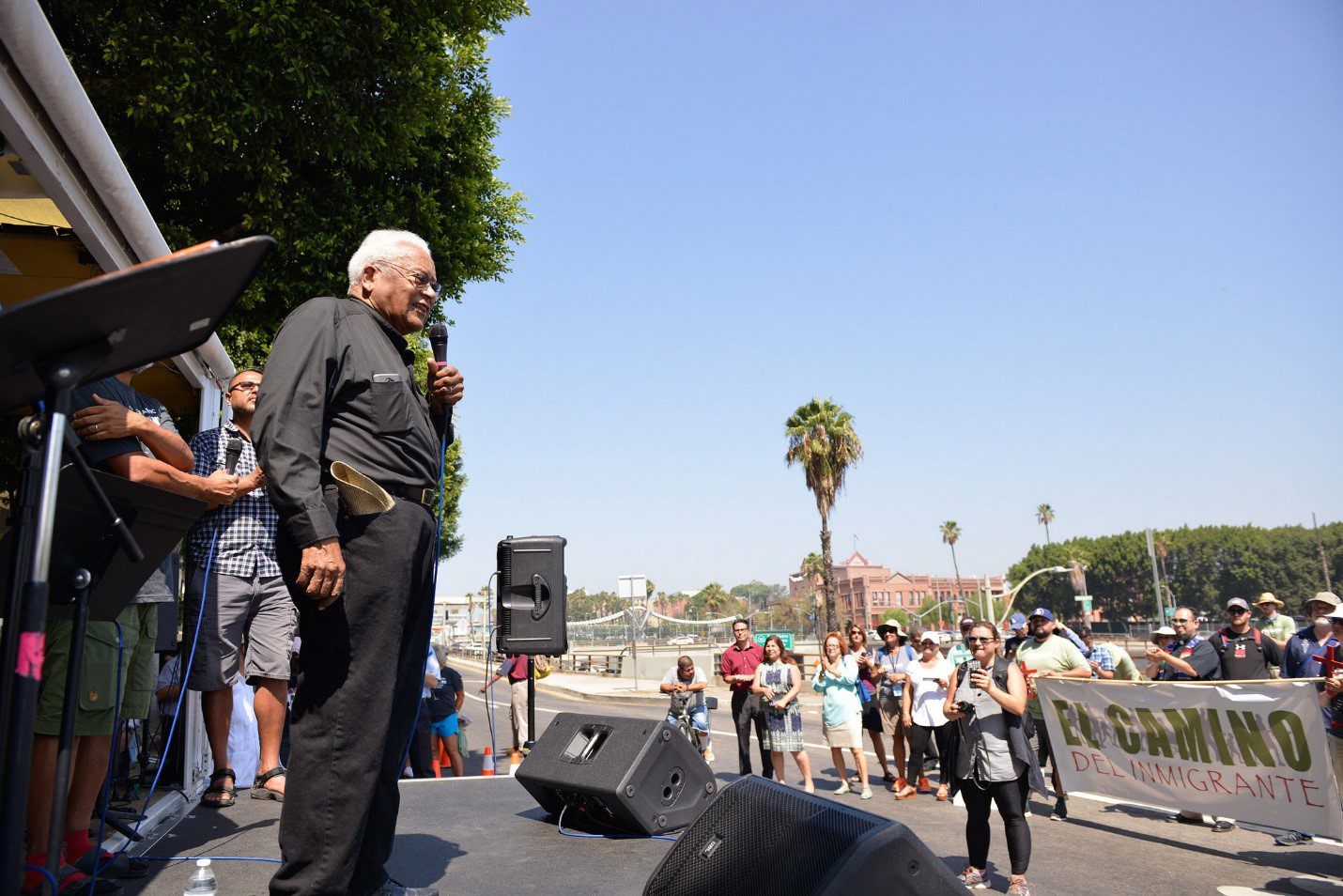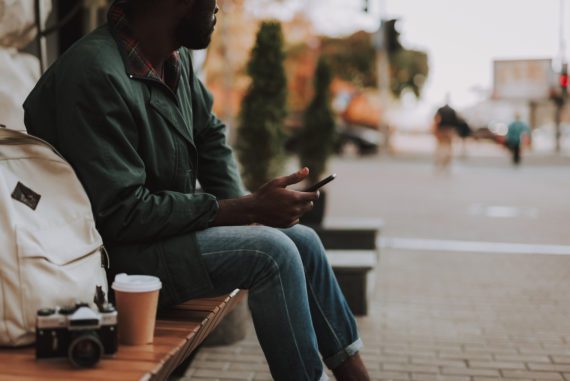By Pedro Cruz
Rev. James Lawson is a living legend of the Civil Rights Movement. He first learned about nonviolent resistance while serving as a Methodist missionary in India in the 1950s. When he returned to the United States, Rev. Lawson worked closely with the Southern Christian Leadership Conference, conducting workshops on nonviolence direct action to white and African-American students. As an outcome, a well-organized group of students requested services in segregated businesses in downtown Nashville, Tenn. One-hundred and fifty students were arrested, and the sit-in received national attention.
In 1968, while serving as a pastor in Memphis, Tenn., Rev. Lawson worked in solidarity with sanitation workers and built alliances with unions and religious and civil rights activists to pressure the city to recognize the grievances of the workers. To get national attention, Rev Lawson invited his collaborator Dr. Martin Luther King Jr. to come to Memphis.
In the 1970s, Rev Lawson moved to Los Angeles, Calif., where he served as pastor at Holman Methodist Church until his retirement. He has been a strong advocate for workers’ rights and a living wage in the city. Besides being a champion for better wages, he has also actively supported immigrant rights, using old civil rights tools—like the launching of the Immigrant Workers Freedom Ride in 2003, a remembrance of the Freedom Ride of 1961.
“No human being in the sight of God is illegal,” says Rev. Lawson.
Last summer, Rev Lawson joined Bread for the World activists, immigrant rights groups, and other faith-based organizations at a rally in downtown Los Angeles, in front of a detention center. The civil rights icon highlighted both the need for immigration reform and an end to mass incarceration. These two issues have been contributing to much hunger and poverty in the United States.
Rev Lawson sees a connection between the struggles of African-Americans and those of immigrants—declaring, “Let black people of faith remember we are the only people from the USA who were shackled and forced to immigrate.”
Pedro Cruz is regional organizer at Bread for the World.



